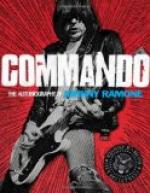Once, as I lay resting against my saddle, I heard an old Boer telling of the courage and hopefulness among the burghers from whom he came. They talked of nothing but peace. It was their belief that a European Sovereign on marriage may make a request which must be granted. He may even ask a million pounds or somebody’s head, and cannot be refused. So, they said, Queen Wilhelmina had risen to make her speech at her wedding, and had requested absolute independence for the Republics. The Kings and Princes were against it, but could not break the old custom, and therefore peace would soon reign over our country. But such talk of ‘peace’ was an exception, not the rule. After the terrible experience of the last months, we had become resigned to our fate, and did not try to anticipate the future. We knew that we must fight with courage and energy, and the rest we left in God’s hands. We had ceased to be curious about the plans of our Generals, which were never made known to us. Exhausted in body and spirit, we took no account of time. It was all one to us whether it were morning, noon or night; whether we had to march one, two, or three hours longer; whether we had to march at all, or to remain where we were. But we were not demoralized, not unnerved. An overworked horse allows himself to be caught and ill-treated afresh. The enemy, had only to fire at us to rouse our slumbering energy, for we suffered voluntarily, and were a support to each other, because of our firm conviction that we were giving our lives for the sake of our independence.
It rained when we arrived at Tafelkop, and when we had been there a week it still rained. The only clothes we possessed were beginning to rot on our bodies. Some of the burghers had a change of clothes on the trolleys; others made themselves trousers of their many-coloured blankets, in which they cut a remarkable figure. Others, again, were in tatters, and had to disappear on the few occasions that any lady visited us. Most of the men had no mackintoshes, but always looked forward to the sunshine that was sure to follow a heavy shower. But if the rain continued, we made huts of grass, or clubbed together in the few remaining tents, or if there happened to be an unburned farmhouse, we made for that.
When the rain continued at Tafelkop, and our limbs became stiffened with the cold, some of us went to an outhouse belonging to a neighbouring farm to seek shelter. During the day we sat there in our wet clothes staring dismally out into the rain. At night we tried to warm our naked bodies by covering ourselves with the dirty wool that happened to be lying there. All the outhouses in the neighbourhood were crowded with armed burghers in tatters. On the eighth day, when the welcome sun made its appearance once more, our clothes were still dripping.
Lately we had had fruit as a substitute for sugar; but the fruit season was over now, and we had to go back to meat and mealie-porridge, or mealie-porridge and meat.




